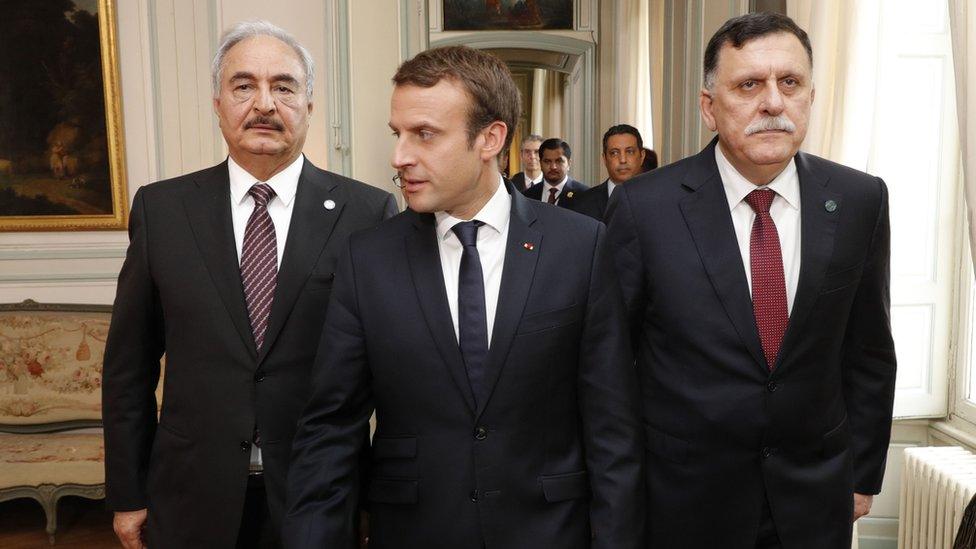EU looks away as Catalan crisis unfolds
- Published
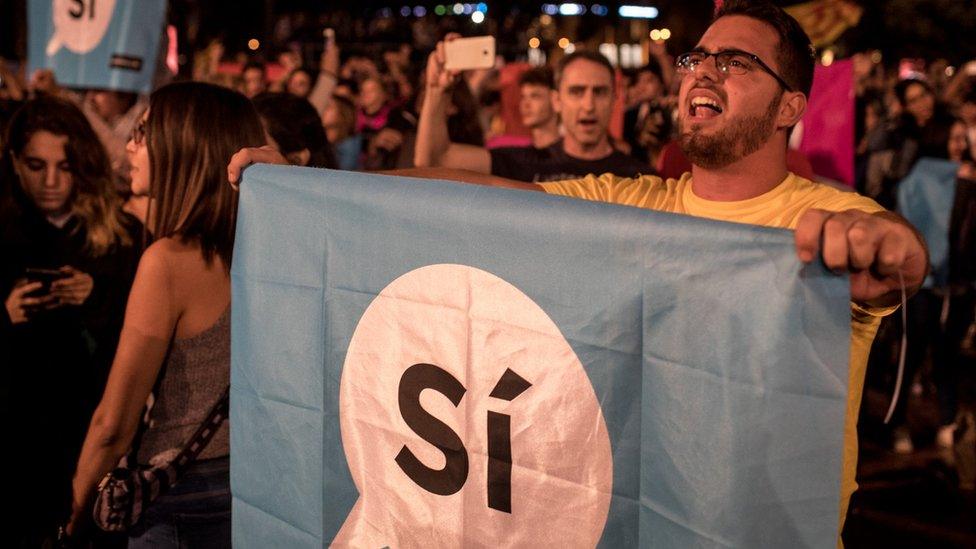
Catalan separatists celebrated in Barcelona after polls closed
So where the cries of outrage? Where the statements of condemnation, the tweets of shock at the violence meted out on the voters of Catalonia at the hands of the Spanish police?
In Europe's capitals there has been an echoing silence. Most heads of government - who feel quite able to respond to the slightest turn of the Brexit saga - appear to have lost their tongues.
The Belgian prime minister, Charles Michel, said that "violence can never be the answer". The Slovenian prime minister, Miro Cerar, said he was "concerned". But these two seemed to be the exceptions that proved the rule.
One could explain this collective omertà on the usual diplomatic niceties about EU countries not intervening in each others' domestic politics.
But there is so much more to it than that.
First, many EU nations fear that if Catalonia won its independence, then that would encourage other separatist movements in their own countries. Many of Europe's nations are relatively young conglomerations of ethnicities and languages and territories.
The last thing they would want is the integrity of their own states being threatened. Think northern Italy, Corsica, Flanders and the south Tyrol.
Second, there is a question of consistency. How could an EU that opposed independence for, say, the Kurds or Crimea suddenly decide to welcome it for the Catalans? The EU would find it hard to back a vote for self-determination that had been so clearly ruled illegal by a country's constitutional court.
But third, and most importantly, the EU is fundamentally opposed to separatist movements in principle. They are seen as a threat to what is still a club of sovereign nations. Suddenly having one member divide in two would create huge problems for officials in Brussels.
Should an independent Catalonia join the EU? Should it join the euro? What would happen if Spain blocked Catalonia's membership? What would happen to Spain's economy shorn of the Catalonian powerhouse that produces 20% of the country's wealth. What would happen to Spain's sovereign debts?
And what of Britain? Opposition politicians called on the government to intervene and speak out. The Lib Dem leader Vince Cable called for the Spanish ambassador to be summoned. But the Foreign Secretary, Boris Johnson, merely tweeted that the referendum was a matter for Spain, its constitution should be respected, and the country was a close ally and good friend. He did admit to Reuters that he was "worried" about the violence but there was no actual condemnation.
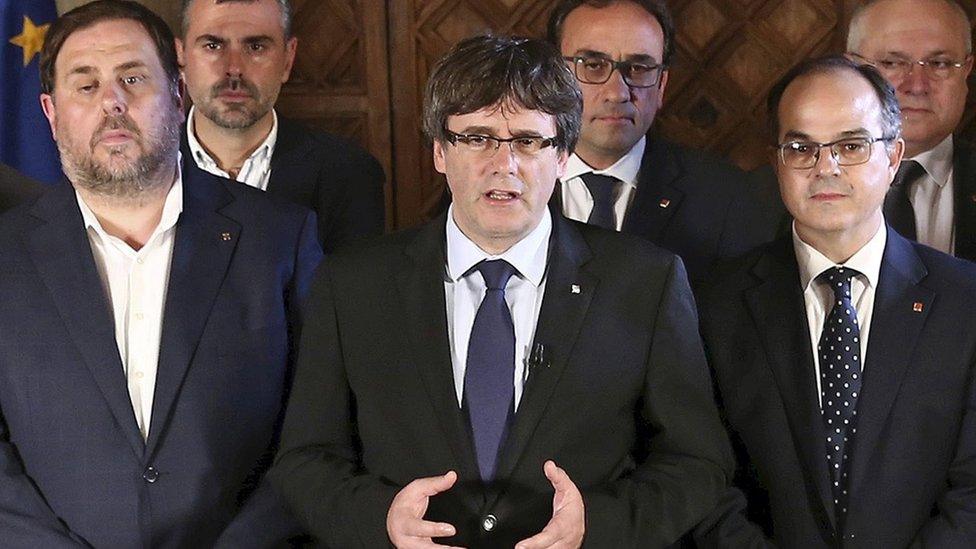
Catalan leader Carles Puigdemont said the vote paved the way for a declaration of independence
Now this is hardly surprising. The British government, of course, has had to deal with its own independence referendum in recent years and may be unwilling to do anything to encourage or provoke the Scottish National Party that has been on the back foot of late.
But also, as the Brexit negotiations progress, the UK has no desire to provoke a European ally unnecessarily. There is no national interest in upsetting Madrid whose support Theresa May will need in the months and years ahead.
And yet there is a paradox in all this. We are told constantly that the problems of today are global, that economic crisis, climate change, terrorism and migration can be tackled only by supranational action.
Yet here we have, once again, people and politicians turning instead to the nation state as the answer to their problems. The Catalonian separatists believe their interests will be best served by forming their own country independent of Spain.
The government in Madrid sees Catalan independence as a fundamental threat to the constitutional Spanish state that emerged from dictatorship in the 1970s. And a European Union that gives daily lip service to the idea of breaking down the boundaries between its members looks silently away as one of its number uses state violence to protect the integrity of its borders.
Four centuries ago, the Treaty of Westphalia established the principle that the sovereign state should be the building block of world affairs, the best way of promoting the interests of the peoples within their borders.
And four centuries on, this is the one principle on which the politicians in Catalonia and Madrid have common ground. Both sides are nationalist in their own way. Their disagreement is merely one of geography.
The crisis in Spain has shown that, like Mark Twain, reports about the death of the nation state have been much exaggerated.
- Published25 August 2017
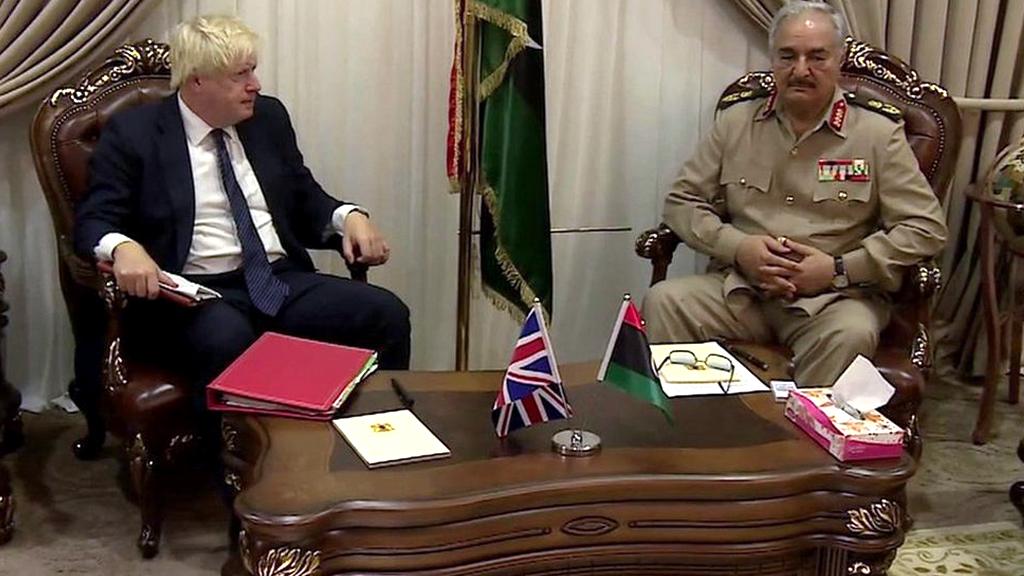
- Published23 August 2017
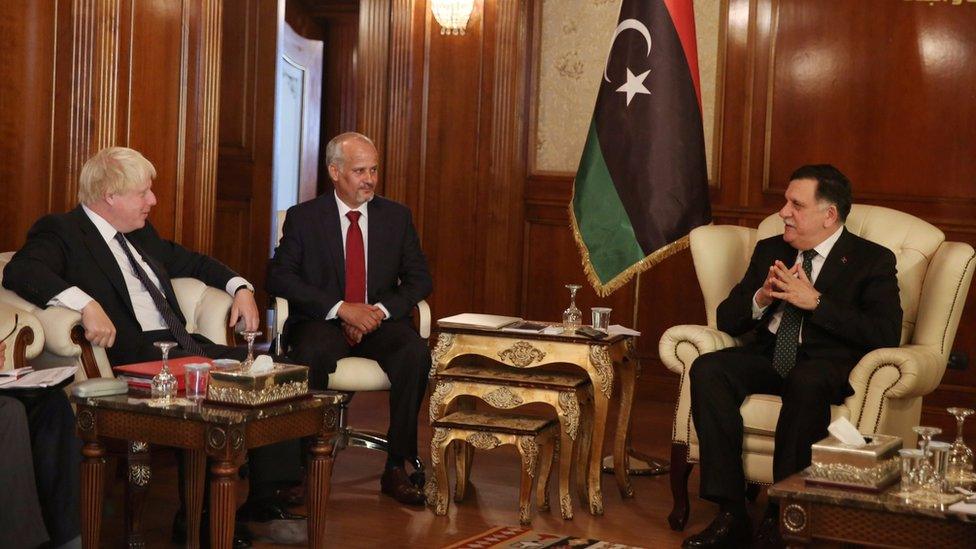
- Published25 July 2017
